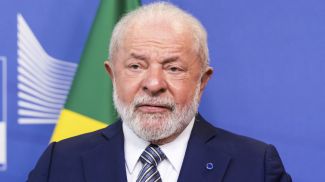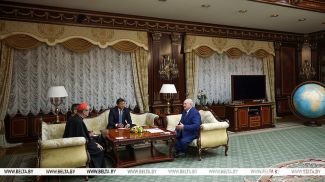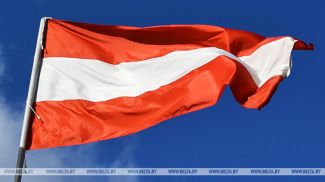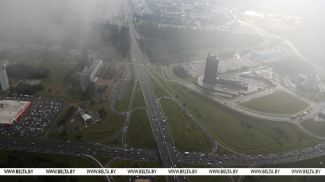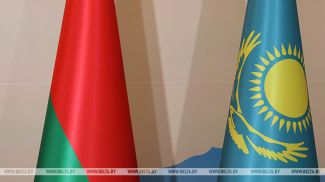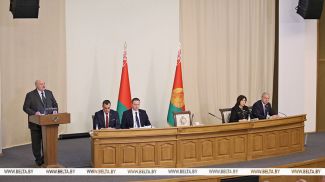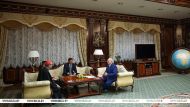MINSK, 19 May (BelTA) - I am planning to meet with Russian President Vladimir Putin soon to discuss import substitution issues, Belarusian President Aleksandr Lukashenko said as he met with Governor of Nizhny Novgorod Oblast of Russia Gleb Nikitin in Minsk on 19 May, BelTA has learned.
The president called import substitution the number one issue for the economies of the two countries in the current environment. “We have discussed the matter with the president of Russia quite recently. We will soon meet again to discuss these issues. We have already looked at what programs we need to implement. We have calculated how much money we will need on them. I have to tell you that this is not much compared to the huge machine we have in Belarus and Russia [the economies of the two countries in general],” Aleksandr Lukashenko said. In his words, the governments of Belarus and Russia have already been instructed to deal with this issue, and the presidents are going to discuss how these instructions are fulfilled during an upcoming meeting. “We have agreed with Vladimir Vladimirovich [Putin] to sit down and have a look. We have the program. It is the most important program for us and for Russia,” stressed Aleksandr Lukashenko.
The production of semiconductors and other innovative products is viewed as one of the most important areas of import substitution in both states. “I cannot say that we do not know how to do anything in this respect. But we need to reach the level that the world has today (with microcircuits, microchips),” the president said.
“We agreed with Putin that no matter how much it may cost, we must produce them [semiconductors]. Maybe they will not be of the same level as in the United States, Japan, and Korea, but airplanes and rockets will fly and cars will move around. We have the necessary competences,” the Belarusian leader said. According to him, import substitution is important for Belarus also in part of industrial development and gaining higher competencies.
Besides, the two leaders are expected to discuss industrial cooperation: “We should decide: if we, for example, can produce good harvesters, we should unite with Rostselmash and compete with foreign models, not with each other. We should not repeat the past experience,” the Belarusian leader said.
Aleksandr Lukashenko said that in the Soviet times Belarus boasted a well-developed machine building industry. After gaining independence the country developed this sector further. There was even time when the country's products competed with the Russian ones. “There are no such problems today. We have a common market. We need to move forward, develop, and there is a certain support from the Russian Federation,” the president said.
According to him, Belarus also has something to offer to high-tech industries of Russia. For example, there is demand for Belarusian competences and products at Russia's Vostochny Cosmodrome. The matter pertains first of all to a high-resolution satellite. In turn, Russians helped Belarusian specialists acquire knowledge and experience in the nuclear power industry during the construction of the Belarusian nuclear power plant.
According to the president, efficient cooperation with Russia is based on strong economic and interaction ties: “If we have these competences, then we should focus on them and link the economies this way”.
Aleksandr Lukashenko stressed that Belarus and Russia are developing cooperation as two independent states, and the Union State integration issue should be approached step by step. “Then we will not have to shout that we urgently need a single currency, a single parliament, as if it were the main thing,” he said. “We have a parliamentary assembly. Let it work. We have a common government. Let it work, too. We have a supreme collective body of power [Supreme State Council of the Union State]. Let us engage it. If they are not able to do something, we will think what to create instead.
“No, they keep agitating people here and there, saying that someone loses its independence, being taken over by others. Such tendencies are already in place. As if we had nothing else to do today! We cooperate as two independent states, don't we? We cooperate in every possible area,” said the head of state.




